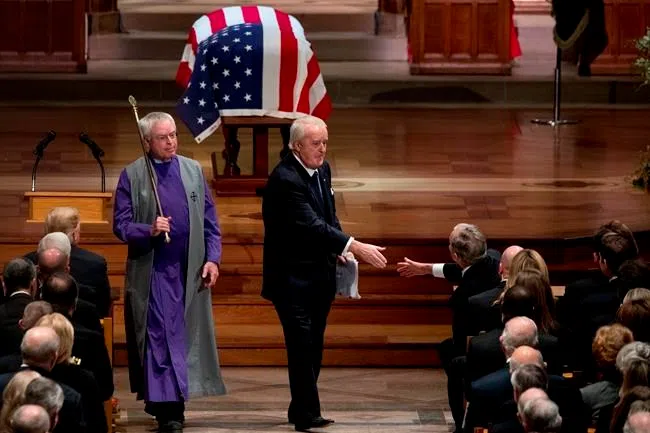
Mulroney fights tears in loving tribute to former president George Bush
WASHINGTON — It was his first NATO meeting in 1989, and as a parade of world leaders took turns at the podium, newly elected U.S. president George H.W. Bush was taking a lot of notes.
Brian Mulroney, Canada’s prime minister at the time, couldn’t help but notice — and ultimately couldn’t resist.
“It’s very flattering to have the president of the United States take notes as you speak,” Mulroney wryly observed during a moment of levity in his tribute to the life and foreign-policy legacy of his close friend and confidant.
“Even someone as modest as me,” he said, pausing for a cascade of knowing laughter, “threw in a few more adjectives here and there, to extend the pleasure of the experience.”
